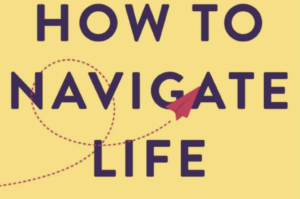Joel Klein's Last Memo, 12.21.10
Dear Colleagues,
This is my final letter in Principals’ Weekly. It has been a privilege and honor to have worked with you for eight and a half years to serve the public school children of New York City. For someone whose own life was changed by public schools in this city, to return as Chancellor has been an experience that reminds me of some of the most meaningful words I’ve ever read. They come from the T.S. Eliot poem, Little Gidding:
We shall not cease from exploration
And the end of all our exploring
Will be to arrive where we started
And know the place for the first time.
That’s the odyssey I’ve been on. And it’s been one heck of a ride. For all the noise—and, trust me, change doesn’t come silently—I have never had a better job, one where I knew every day that the work was vital and the potential for changing others’ lives was enormous.
As I leave, I’m proud to say ours is now a very different—and much better—school system. Bob Schwartz, Academic Dean at the Harvard Graduate School of Education, recently described Children First as “the most dramatic and thoughtful set of large-scale reforms going on anywhere in the country.”
I agree with him, and we have the results to prove it. The most important is that many more students are now graduating high school and going to college compared to when we started. After at least a decade of stagnation, the City’s graduation rate for regents and local diplomas increased by nearly 20 points from 2002 to 2009: we had 31,000 graduates in ‘02 and almost 50,000 in ’09. That’s a lot of lives that are better off. New York City’s progress is virtually unrivaled, as a recent independent study confirms. And because many more students are now graduating high school, many more are going to college. At CUNY colleges alone, the number enrolled as first-time freshmen has increased by more than 9,000 students (from 16,000 in 2002 to 25,500 in 2009), with Latino and African-American students leading the way.
Similarly, on national and state tests we’ve made consistent and significant progress. On NAEP, which tests 4th and 8th grade math and ELA nationwide, we’ve gone up 11 points in both fourth grade math and reading, and 7 points in eighth grade math, during our tenure. Over this period scores in the nation as a whole went up half as much and the rest of our state remained essentially flat. Those are big gains and huge differences. And, while there has been a lot of controversy about state tests since the state made it much harder to get a passing (or “proficient”) grade last year, it nevertheless remains clear that we have made real progress on the state tests as well, as a recent, very rigorous study by James Kemple found.
Lastly, two of our most sweeping—and highly controversial—initiatives have been independently researched, again under the most rigorous protocols, and were found to have improved student achievement substantially. First, our program to phase out large, failing high schools and replace them with smaller ones, created in partnership with strong community organizations, has increased credit accumulation and graduation rates significantly. And two studies by Stanford professors (read them here and here) concluded that the charter schools we’ve opened are getting much better results than comparable district schools serving similar students.
That is a strong record of accomplishment, and it wouldn’t have happened if you, your teachers, and the other members of your team didn’t make it happen. From the beginning, our vision of reform was about a system comprised of great schools, since that’s where children get an education. Because of your leadership and hard work, our schools today are better, and quite a few of them are a whole lot better. Thank you for that, and for so much more—your candor, wisdom, colleagueship, and friendship. I will be forever grateful.
But despite this substantial progress, our schools are still not remotely where they need to be. Our graduation rate and test scores remain way too low. And these levels of under-achievement will becomeeven more apparent as we face the necessary challenges presented by more demanding standards coupled with more rigorous tests: college- or career-readiness will require much more from our high school graduates. But, in the 21st Century, college- or career-ready is the only meaningful standard for high-school graduation. And meeting these challenges will be made even harder by the budget cuts that loom on our horizon.
The lesson of the past eight years—“knowing the place for the first time,” as Eliot would say—is that this can be done. It will take bold leadership at every level, and I know my successor, Cathie Black, is prepared to provide that leadership. She will need your leadership and support as well. And I am confident that you will provide both.
In particular, there are three critical issues now confronting our school system that I hope you will do everything in your power to help address.
The first is the issue of phasing-out schools and replacing them with new ones. Proposing to phase out a school is the hardest decision we make. But, unfortunately, it’s a necessary one. Schools that persistently have graduation rates below 50%, or where a low percentage of students are on grade level, after years of numerous efforts to turn them around, are unacceptable. I don’t think any of you would send your own children to one of those schools. That’s a pretty telling fact. And if that’s true, whose children should go there? Surely, the answer cannot be those with the most challenges and fewest options in life. Let’s not allow job security and nostalgia to stand in the way of doing the hard work necessary to do right by our students.
Second, we have to eliminate the ATR pool. ATRs were the price we paid for ending the harmful practice of forced placement, where thousands of teachers each year would transfer into schools automatically. Many of you have told me that the best thing we did was to stop this destructive practice. But, after several years, the cost of the ATR pool has gone though the roof—now, it exceeds $100 million per year. We cannot afford it, and it’s wrong to keep paying this money. It amounts to supporting more than a thousand teachers who either don’t care to, or can’t, find a job, even though our school system hires literally thousands of teachers each year. That’s money that could be spent on teachers that we desperately want and need. I know this issue is uncomfortable for some of you, but the current budget crisis simply doesn’t allow us to continue paying for ATRs any longer.
Third, I fear that, next year, for the first time in recent memory, we will have to lay off teachers. I wish it were otherwise, but the economics of our state and city make this virtually impossible to avoid. If we have layoffs, it’s unconscionable to use the last-hired, first-fired rule that currently governs. By definition, such a rule means that quality counts for zero. Our children cannot afford that kind of approach. They need the best teachers, not those who are longest serving. (If you had to have surgery, would you want the longest-serving surgeon or the best one?) This doesn’t mean that many of our longest-serving teachers aren’t among the best, but this is not an area for “group think.” We need individual determinations of teacher effectiveness to decide who stays and who doesn’t.
In conclusion, as I formally say goodbye to the best group of school leaders a Chancellor could ever have hoped for, I am confident that, working with Cathie Black, you will continue to move this system forward. It won’t be easy, and it won’t happen without controversy. But as long as we have schools to which you wouldn’t send you own children, we cannot tolerate the status quo, no matter how comfortable it is for the adults. You know what’s right. Make it happen.
Let me close by offering to each of you, your school communities, and your loved ones my very best for the holidays and a wonderful 2011.
Sincerely,
Joel I. Klein Chancellor
[from EdWonk posting]






0 Comments
Leave a Comment
Your email address will not be published. All fields are required.